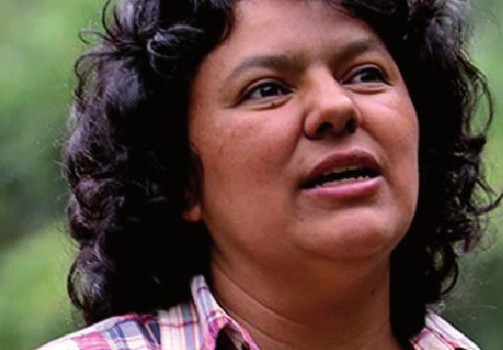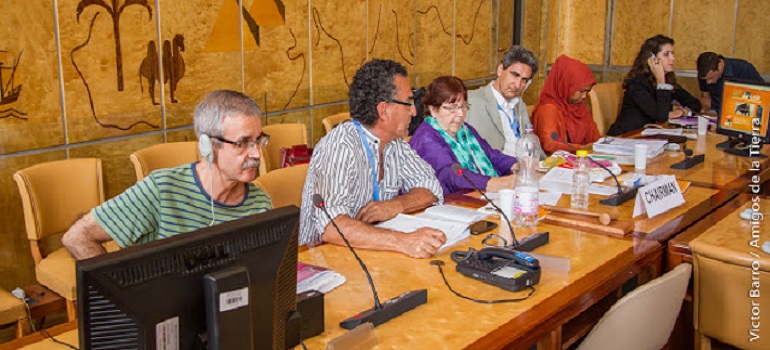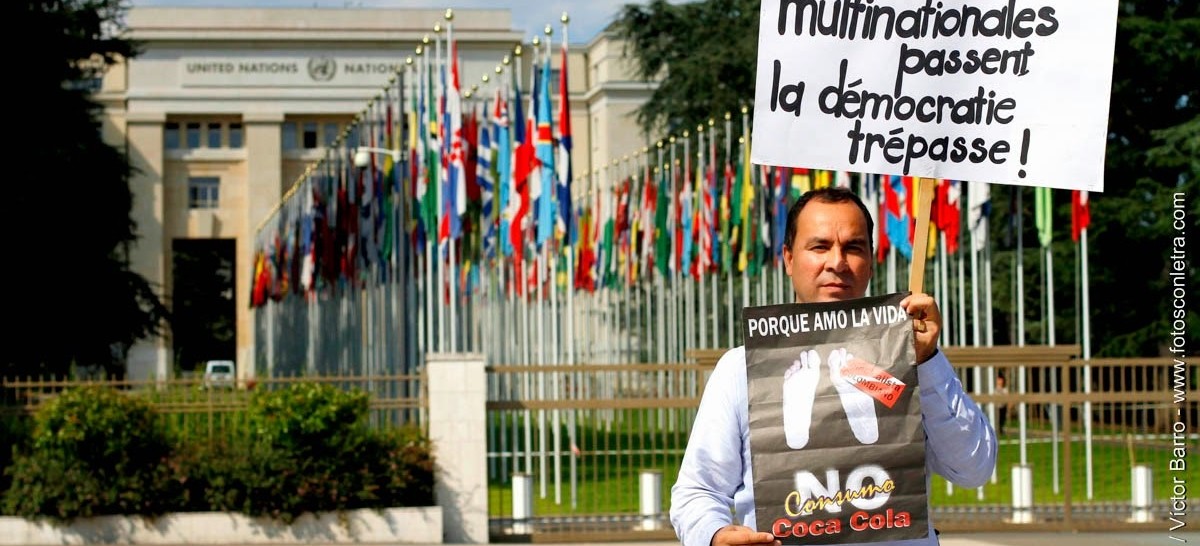Transnational corporations (TNCs) have become major and powerful actors.
The activities of transnational corporations are a source of multiple human rights violations
In many cases, especially when victims are from the Global South, impunity prevails. TNCs are indeed able to evade national jurisdictions because of the unprecedented economic, financial and political power they command, their transnational character, their economic and legal flexibility and the complex structures they use to carry on their activities.
Since the late 90s, the CETIM is firmly committed to ending the impunity of transnational corporations and ensuring access to justice for the victims of their activities. The CETIM supports social movements, trade unions and organizations representing victims and affected communities from the Global South in their efforts to access the UN human rights protection mechanisms. And the CETIM is involved to their sides in the campaign for new binding international norms to end impunity, providing its support for their participation in the negotiations and the presentation of their proposals.
Stop TNCs impunity Campaign
Access to justice for victims of TNCs
Summary CETIM and AIJD address the two Special Rapporteurs on their joint report to express their concerns about the problem of extrajudicial, summary or arbitrary executions and the consequences that these have on the human rights situation in various countries. In the statement, CETIM and AIJD raise the case of the murder of activist and […]
Continue reading
On 9 September 2015 the Europe – Third World Centre (CETIM) submitted to the Human Rights Committee of the United Nations a complaint against the Colombian State for repeated human rights violations and the killing of Adolfo Múnera López, an employee of Coca Cola and member of Sinaltrainal, one of the unions targeted in a […]
Continue reading
Press release of the UN Independent Expert on the promotion of a democratic and equitable international order NEW YORK (26 October 2015) – “Trade must be made to work for human rights and development and not against them,” the United Nations Independent Expert on the promotion of a democratic and equitable international order, Alfred de Zayas, […]
Continue reading
The first session of the intergovernmental working group on transnational corporations (TNCs), other business enterprises and human rights was held from 6 to 10 July 2015 in spite of adversarial maneuvers by Western countries. The CETIM was present, along with the Global Campaign to Dismantle Corporate and Stop Impunity, to give voice to the demands […]
Continue reading
Following action by CETIM, Human Rights Council special procedures have written to the Colombian Government to ask it to account for the numerous attacks on the SINALTRAINAL union, which is paying a high price for its struggle for workers’ rights: 25 of its members have been killed since 1986.
Continue reading
« Previous
1
…
24
25
26
27
28
…
39
Next »






